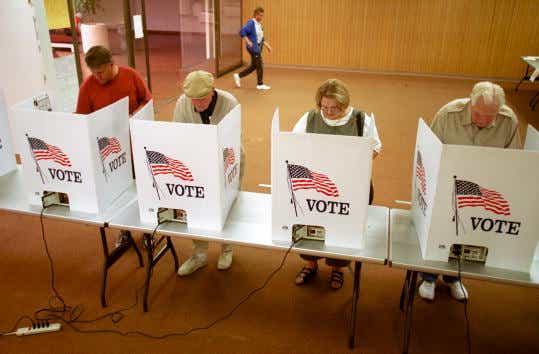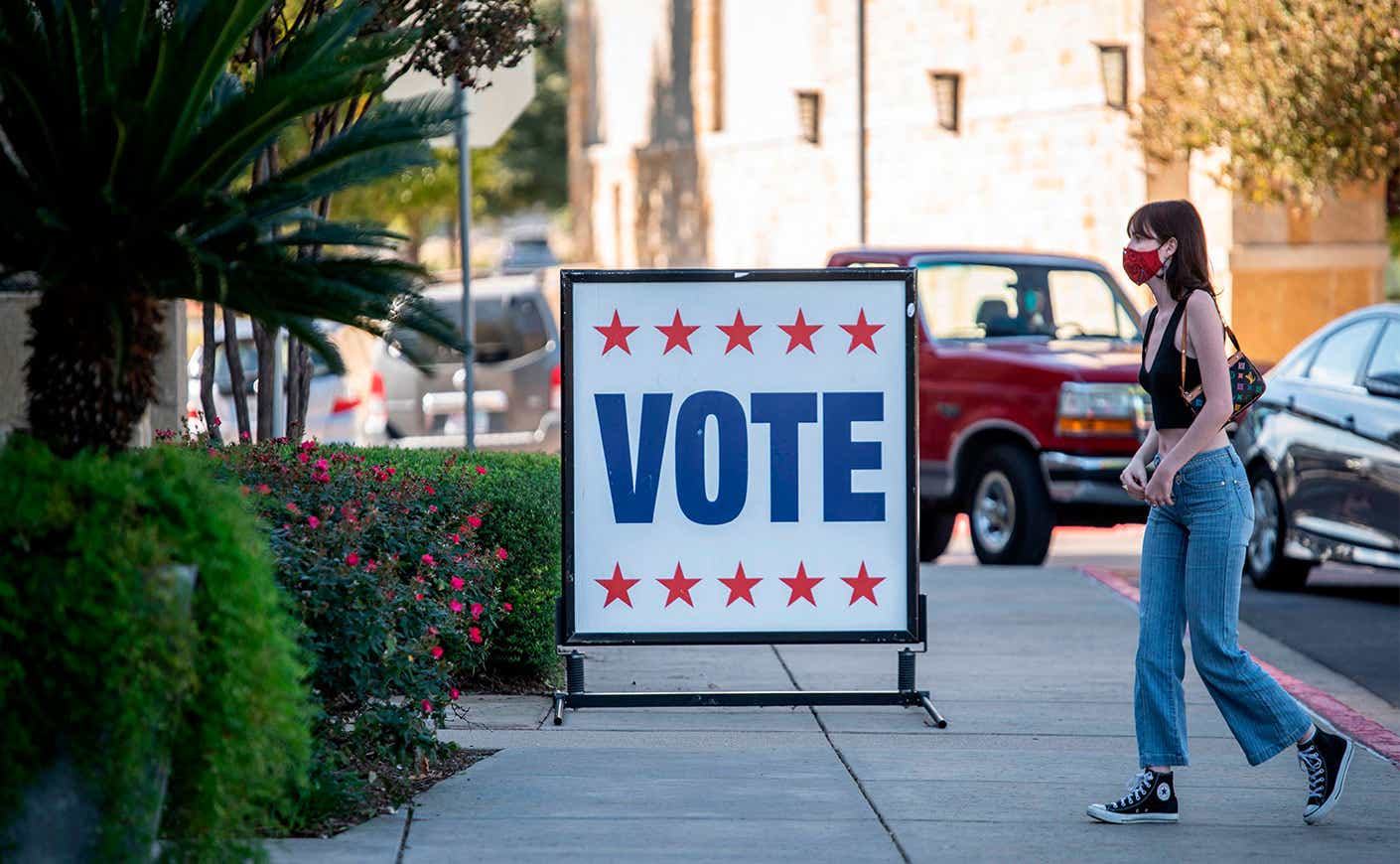There's a brand-new bill in Texas that could fundamentally change the way Texans vote — and impact voting rights across the country.
On May 30th, House Democrats staged a walkout in protest of the controversial Senate Bill 7, which left the state House without enough members present to reach a quorum. This unorthodox move marked the fourth time Texas lawmakers broke quorum, according to the Dallas Morning News.
Among other rollbacks, the sweeping bill would make mail-in voting even more difficult, ban early voting on Sunday mornings, and prohibit local elections officials from sending out absentee ballot applications to anyone who hasn’t requested one.
The measure’s dead for now, but Texas Gov. Greg Abbott said he plans to bring the bill back to a special session later this year. Sloan Byerly, the chief of staff to GOP Rep. Travis Clardy, told KCM that could happen as soon as August 1.
“The fight is still happening and will continue,” said Tommy Buser-Clancy, a senior staff attorney at the ACLU of Texas.
Meanwhile, Abbott has also vowed to take retaliatory measures, saying he plans to defund the state legislature over the walkout. Democratic Texas state Rep. Gene Wu is unphased by the threat.
“It's a part of the growing circus and insanity that is Texas politics and government,” Wu told KCM. “The concept of defunding an entire branch of government—one of the three branches that are supposed to check each other— it's juvenile; it's childish.”
Wu believes Texas “has always been the battleground for voting rights,” but only recently came under the national spotlight. That’s due to a broader push among a growing number of GOP-led states to change election laws in ways that could make it harder to vote. Georgia, Florida, and Michigan are now among the states to have passed legislation-tightening voting laws.
Wu says these restrictive changes are due, at least in part, to former President Trump’s repeated false claims that the 2020 election was stolen through rampant fraud. Those claims fueled Republican efforts across the country to pass a record number of voting restrictions.
“The Texas GOP — like the GOP in many other states — is just doing everything they can to just please Trump supporters,” said Wu. The irony, he explains, is that many Texas GOP lawmakers aren’t supportive of the bill in private, because it affects their communities, particularly communities of color.

Senate Bill 7, also simply known as SB7, would be one of the most restrictive voting laws in the country, and critics argue it would disproportionately affect people of color — especially those who live in under-resourced and urban communities.
One key provision would’ve barred early voting before 1 p.m. on Sunday, affecting a long-standing effort known as “souls to the polls,” aimed at encouraging Black churchgoers to cast their ballots right after services. But state Rep. Travis Clardy, a key Republican on the state’s election committee, has maintained that it was a misprint that he intends to fix.
Still, other controversial provisions would hurt efforts to mobilize voters, such as a requirement that anyone who drives more than two non-relatives to the polls should submit a signed form stating the reason for the assistance.
An earlier draft of the bill has even drawn comparisons with Jim Crow laws. Cliff Albright, a co-founder of the group Black Voters Matter, said that at one point, the voting bill included phrases like “purity at the ballot box,” which were once used in the South to justify the disenfranchisement of Black voters. “They literally used Jim Crow language explicitly in the bill,” Albright told The Washington Post.
"We have to get this bill passed no matter what it takes"
Tiffany Muller, president of political action group Let America Vote, believes the stakes for this bill are still “incredibly high.” She said that approximately 400 bills have been introduced in 48 states to roll back voting rights — more than any time since the Jim Crow era.
That’s why Muller believes it’s imperative for the U.S. to pass national voting laws. Let America Vote is currently mobilizing efforts to pass a sweeping election reform bill in Congress — dubbed For The People Act — which would counteract these GOP-led changes to voting laws. It’d also require states to provide mail-in ballots for at least 15 days of early voting, as well as online and same-day voter registration. “This is the moment where we actually need to increase the intensity and pressure on senators to make sure that they know we have to get this bill passed no matter what it takes,” she told us.
But in a blow to fellow Democrats and voting rights groups, Sen. Joe Manchin has announced plans to vote against a sweeping election reform bill, citing fears that it would divide the country further.
Muller spoke out against Manchin’s remarks. and vowed to keep fighting for the bill. “When Senator Manchin comes to the realization that Republicans in the Senate are not acting in good faith,” she said, “he is going to have to make a decision about whether he is truly committed to protecting everyone’s freedom to vote — because that fundamental right is under attack across the country.”
This story was written and reported by Tess Bonn.









